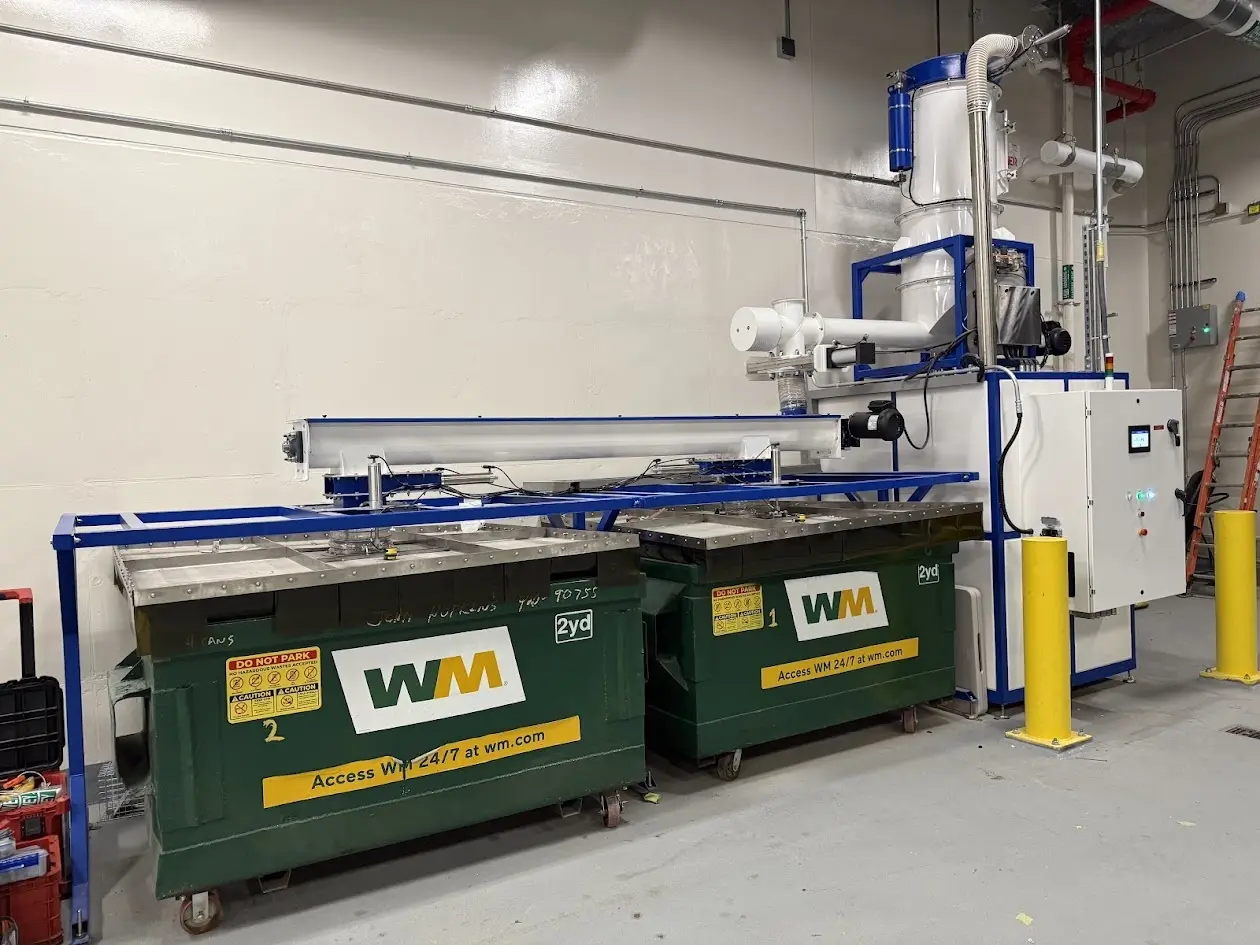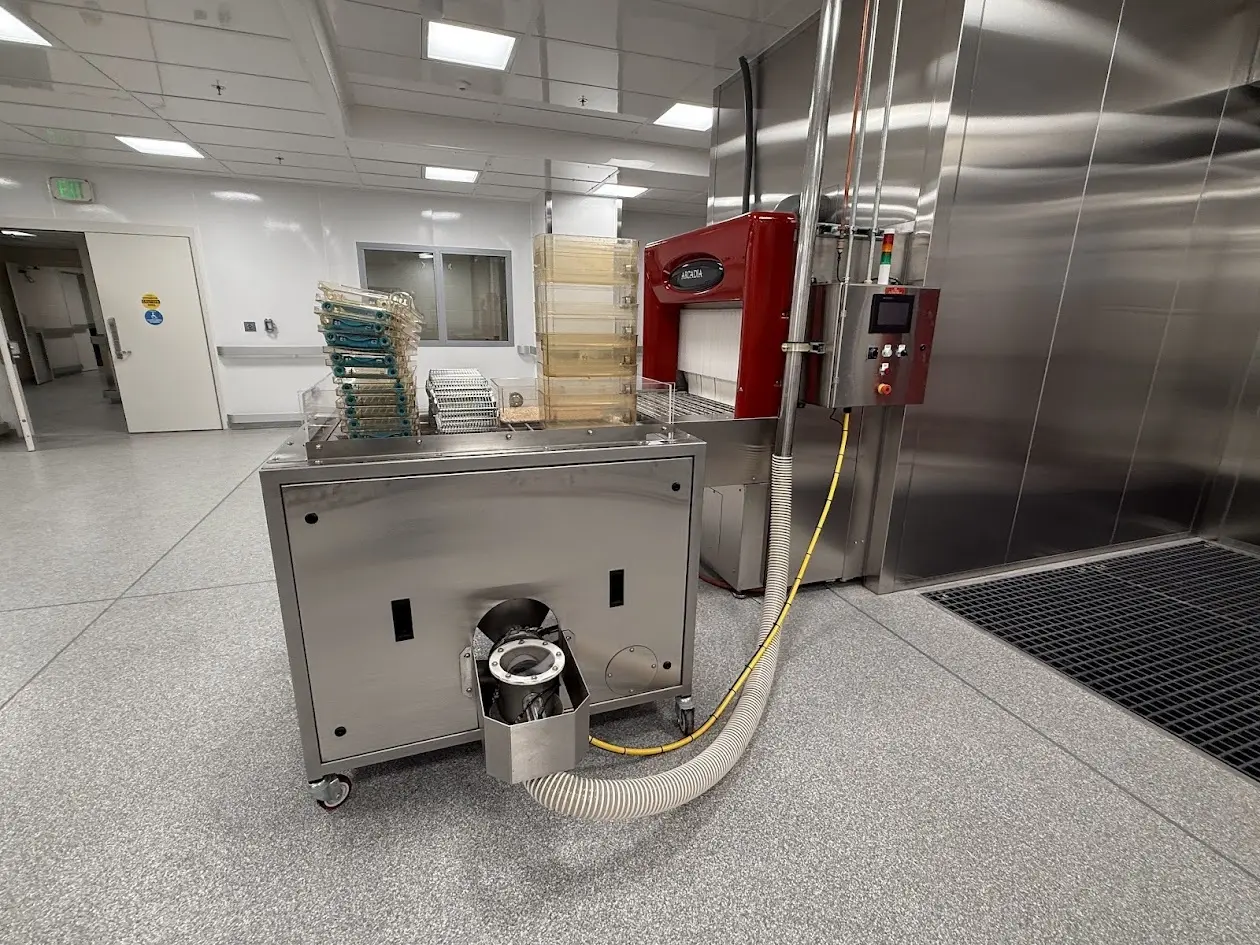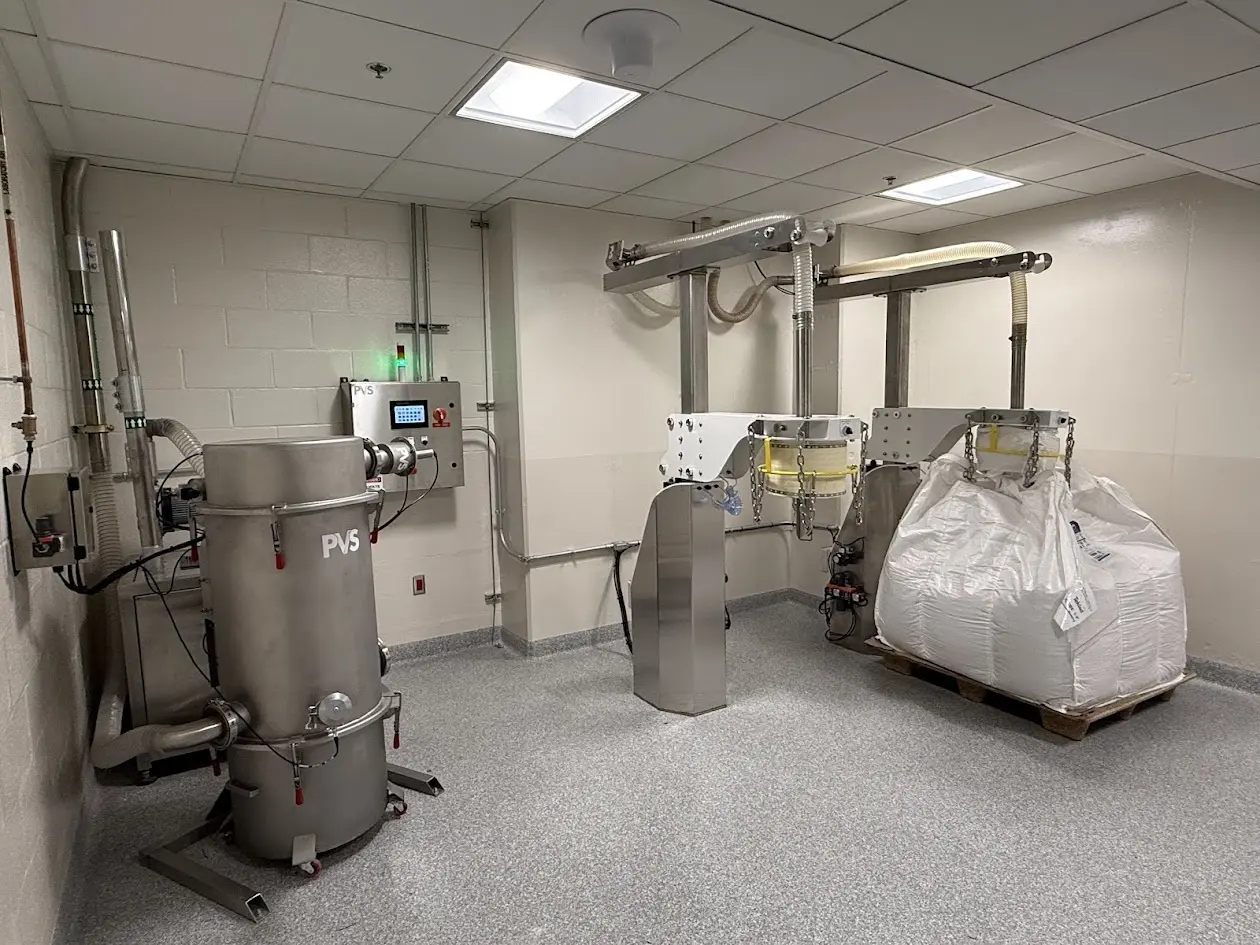Success Story: Enhancing Lab Efficiency at Johns Hopkins with Zephyr Equipment
At Zephyr Equipment, our mission is to deliver engineered solutions that make a measurable impact. We recently had the privilege of partnering with Johns Hopkins University on a comprehensive clean bedding delivery and waste bedding disposal system for their biomedical research facility—and the results speak for themselves.
The Challenge
The team at Johns Hopkins was seeking a reliable, hygienic, and efficient way to manage bedding in their vivarium. With increasing throughput demands and strict biosecurity protocols, the traditional manual methods for delivering clean bedding and handling waste were no longer sustainable.
Their goal was clear:
- Automate clean bedding distribution to multiple cage wash and housing areas.
- Improve containment and minimize operator exposure during waste bedding disposal.
- Integrate seamlessly with existing infrastructure without disrupting daily operations.
The Solution
Zephyr engineered a dual-system solution tailored to the facility’s exact needs:
-
Clean Bedding Delivery System
We implemented an enclosed pneumatic conveying system that transports clean bedding from a central storage hopper to multiple dispensing stations. Our “rainfall-style” dispenser modules ensure even, dust-free bedding distribution into cages, reducing refill time and manual labor. -
Waste Bedding Collection & Disposal
For the dirty side, Zephyr designed a fully contained vacuum disposal system. Waste bedding is pulled directly from the dumping stations and conveyed into a sealed waste hopper located in a service corridor, significantly reducing odor, dust, and the risk of allergen exposure.
Both systems are controlled via an intuitive touchscreen interface, with smart diagnostics and customizable run parameters to match workflow demand.
The Result
Since the installation, Johns Hopkins has seen significant improvements:
- Reduced Labor: Bedding transport tasks are now automated, allowing staff to focus on animal care.
- Improved Air Quality: The enclosed design has drastically reduced airborne dust and allergen exposure.
- Hygienic Operation: Both systems reduce cross-contamination risks and meet stringent biosafety standards.
- Scalable Design: The system is modular, allowing for future expansion as research programs grow.
A Partnership Built on Performance
This project highlights the value of collaboration. From kickoff to commissioning, Zephyr worked closely with the Johns Hopkins facilities and animal care teams to design a system that works with their process—not around it. The result is a cleaner, safer, and more efficient facility ready to meet the demands of cutting-edge research.


